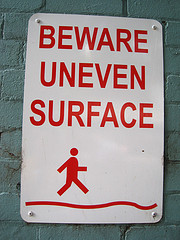Do Your Community’s User Guidelines Only Protect People You Like?
Here’s a good test as to whether the guidelines on your community have any meaning: do they apply to people your community doesn’t like, just like they apply to your members?
Many communities have guidelines that speak to respect. No personal attacks, no name calling, no disrespectful comments, etc. But, I find that sometimes, this guideline is actually limited only to people who are a member of the community.
For example, I can’t call a member of your community stupid. But, I can call a celebrity or politician stupid. Or there is someone that most of your community really doesn’t like. Maybe they are a racist or intolerant in some way. And it is OK for your community to bash them to no end, to say whatever they want about that person or group.
What about guidelines dealing with personal or private information like home addresses, cell phone numbers, itineraries, etc.? I don’t allow those to be posted on my communities, as a general rule. Do only certain groups deserve that protection?
Do your guidelines, especially those that deal with the quality of discourse of how your members treat people on your community, really have meaning if they only apply to friends and those who have joined your site? I’m not saying they do or don’t. But, on my communities, I try hard to ensure that no disrespectful comments means no disrespectful comments, no matter who you are talking about.
Sometimes, this puts me in the position of protecting people who I don’t like or even who I regard as terrible, awful human beings, doing bad things. But, my belief is that we should be able to discuss any topic (that is appropriate for our community) in a productive, reasonable way. If I don’t allow members to say disrespectful or inflammatory things about other members, I don’t want them saying them about other people, either. This isn’t always easy to do, but if you want easy, don’t be a community manager.
You can dislike what someone does, you can criticize their actions, you can disagree with them – without calling them names, without inflammatory language, without personal attacks. That is the level of discourse I aim for.
Two reasons. 1. I believe that everyone is human. Whether my friend, a pop star, a politician – we’re all human. I have acquaintances that some might consider “celebrities.” I assure you, they are human. I would not treat them any different than I would treat you. They deserve no more and no less. 2. If you allow that mob mentality to creep in, if you allow people to believe it is OK to lower the level of discourse in certain cases, that can influence your community and hurt the level of discourse across the entire community.
I want to avoid that. No matter how much I don’t like you or what you do, I will do what I can to ensure that my members do not cross the line between spirited disagreement and personal attack.

